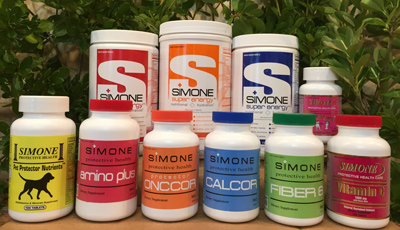12/22/16
We do not diagnose disease or recommend a dietary supplement for the treatment of disease. You should share this information with your physician who can determine what nutrition, disease and injury treatment regimen is best for you. You can search this site or the web for topics of interest that I may have written (use Dr Simone and topic).
“We provide truthful information without emotion or influence from the medical establishment, pharmaceutical industry, national organizations, special interest groups or government agencies.” Charles B Simone, M.MS., M.D.
METFORMIN, PLANT EXTRACT, FOR CANCER PREVENTION AND TREATMENT
Lawrenceville, NJ (Dr Simone) – Metformin was discovered in the 1920s and is the most prescribed anti-diabetic drug in the world. The active ingredient, guanidine compound, comes from the French Lilac plant (Galega officinalis). Glucose feeds cancer cells. Metformin decreases glucose, increases insulin sensitivity, and inhibits cancer growth, as well as cancer cell motility, invasion, and migration.
CANCER PREVENTION
Metformin is associated with the decreased risk of various types of cancers, especially pancreas, colon and hepatocellular carcinoma (Ann Transl Med. 2014 Jun; 2(6): 57. doi: 10.3978/j.issn.2305-5839.2014.06.01 ). Numerous meta-analyses confirm that metformin reduces cancer incidence by 30-50%.
Cancer Prevention Metformin Dose: 250 mg per day decreased the risk of total colon polyps and adenomas by 40% (precursor to colon cancer) [Higurashi et al March 2, 2016. Lancet Oncol].
CANCER TREATMENT
Multiple clinical studies indicate that metformin is associated with decreased incidence of cancer in diabetics, but also a better outcome in cancer patients. For example, Margel et al. assessed the relation between duration of metformin therapy after prostate cancer diagnosis and mortality in patients with diabetes (http://ascopubs.org/doi/abs/10.1200/JCO.2012.46.7043). The data were obtained from several databases in Ontario, Canada. In the cohort consisting of 3,837 patients, they noted that the longer duration of metformin treatment after diagnosis of prostate cancer was associated with a significant decrease in the risk of cancer-specific and also in all-cause mortality. Metformin lowers serum testosterone levels by 20% to 25% and prostate cancer is fed by testosterone.
There are currently more than 100 ongoing or upcoming clinical studies assessing the role of metformin in the therapy cancer
Cancer Treatment Metformin Dose: Most of the cancer clinical trials of metformin use the same doses typically used to treat diabetes. For example: 43 women received 1500 mg per day and 53 women received 1000 mg per day. 1500 mg per day significantly reduced insulin levels by 25%, and testosterone levels by 23% compared to the group who took 1000 mg per day.
https://www.ncbi.nlm.nih.gov/pubmed/22607767/ PMID: 22607767 DOI: 10.1016/j.clbc.2012.03.004
Metformin activates AMP-activated protein kinase (AMPK) that increases the energy of cells via burning up fatty acids, and ultimately leads to stopping the mTOR (mammalian target of rapamycin) pathway that controls protein synthesis, nutrients and energy to cancer cells.
Metformin Increases AMPK That Effects:
– Pancreas: Decreases insulin secretion
– Liver: Decreases fatty acid and cholesterol synthesis
– Adipose (Fat) tissue: Decreases fatty acid synthesis, increases lipolysis
– Skeletal Muscle: Increases fatty acid oxidation, glucose uptake, and glycolysis
– Heart Muscle: Increases fatty acid oxidation, glucose uptake
– Block promotion of cancer genes, and activates tumor suppressor p53 gene
Metformin – How It Works
– Decreases glucose absorption from gastrointestinal tract
– Inhibits production of glucose by the liver (Hepatic Gluconeogenesis)
– Increases sensitivity and number of insulin receptors
– Increases uptake of glucose by cells in the body
– Increases fatty acid oxidation
Other Uses of Metformin
– PCOS polycystic ovarian syndrome to decrease testosterone levels
– Treatment of high cholesterol and LDL. High blood glucose levels are associated with high LDL levels. Metformin reduces cardiovascular mortality by 40% when the fasting blood glucose is less than 86 mg/ml
(c) 2017 Charles B. Simone, M.MS., M.D.


